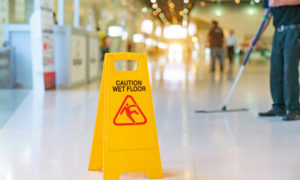Bedsores in Nursing Home Abuse

Nursing homes owe an obligation to the residents to take care of them and ensure their health and safety needs are addressed effectively. These obligations are much more than those of an average person because nursing homes are specifically paid to take care of their residents. Whenever a resident develops bedsores, the facility, caregivers, and other responsible parties can be sued.
What are bedsores?
These are skin lesions that occur when a body sustains prolonged pressure in one area. They cause damage to the upper section of the skin and the underlying tissue. The extent of this damage depends on the period the patient stays without moving or changing position.
Also known as pressure sores, bedsores may not take too long to occur, particularly in older people with mobility challenges. There are different categories of bedsores. Grade 1 bedsores are characterized by mere discoloration of the skin. Grave IV bedsores, on the other hand, are so critical that they can cause extensive damage to the skin, joints, inner body tissues, tendons, and in the worst-case scenario, cause death.
Complications of bedsores
Pressure sores can be challenging to treat and can result in serious health complications. The skin over elbows, back of the head, and heels are at a heightened risk. Tissues that don’t receive sufficient blood flow can die. If left untreated, bedsores can result in other medical conditions such as inflammation of tissues, bacteria entering the bloodstream, infections to the joints, and more.
Neglect or medical malpractice?
Bedsores injuries that occur in nursing facilities are typically neglect claims. If a nursing home resident develops bedsores, the chances are that they are not getting proper care. There may be other instances of abuse and neglect, such as dehydration, malnutrition, and not receiving medication at the right time.
If the patient doesn’t get sufficient medical care immediately after bedsores develop, the nursing facility can be held responsible for further injuries in the complications that might occur. The nursing home can be sued for medical malpractice or wrongful death if the untreated bedsores result in death.
Note that compensation for bedsore related injury claims very significantly. Some of the factors that play into compensation value include:
- Pain and suffering
- Relocation expenses
- Medical costs and future medical treatment
- Transportation cost
- Lawyer’s fees
- Hospitalization expenses
- Funeral costs (in case a wrongful death occurs)
- Lost wages for relatives who had to take care of the family member battling with bedsores.
Anytime you are considering filing a personal injury lawsuit or nursing home abuse claim, it’s recommended to consult with an experienced lawyer. These experts have experience with lawsuits involving bedsores and abuse in nursing homes. The lawyer can review the details of your case and determine if you have a valid claim. He or she can help estimate the amount of compensation you may be entitled to. Note that the nursing home might attempt to distance themselves from the claim, but the right attorney will protect your interests.
Proper care can prevent bedsores
Under the right nursing home care and reliable medical supervision, bedsores can be prevented. It is recommended to reposition a patient regularly. Sometimes, caretakers and nurses can use the right devices to support the patient whenever possible.
Additionally, proper skin care and good hygiene can help prevent the development of bedsores. Some of the skincare activities include helping the patient apply moisturizers that prevent dryness and checking the patient’s skin daily for signs of discoloration.




















